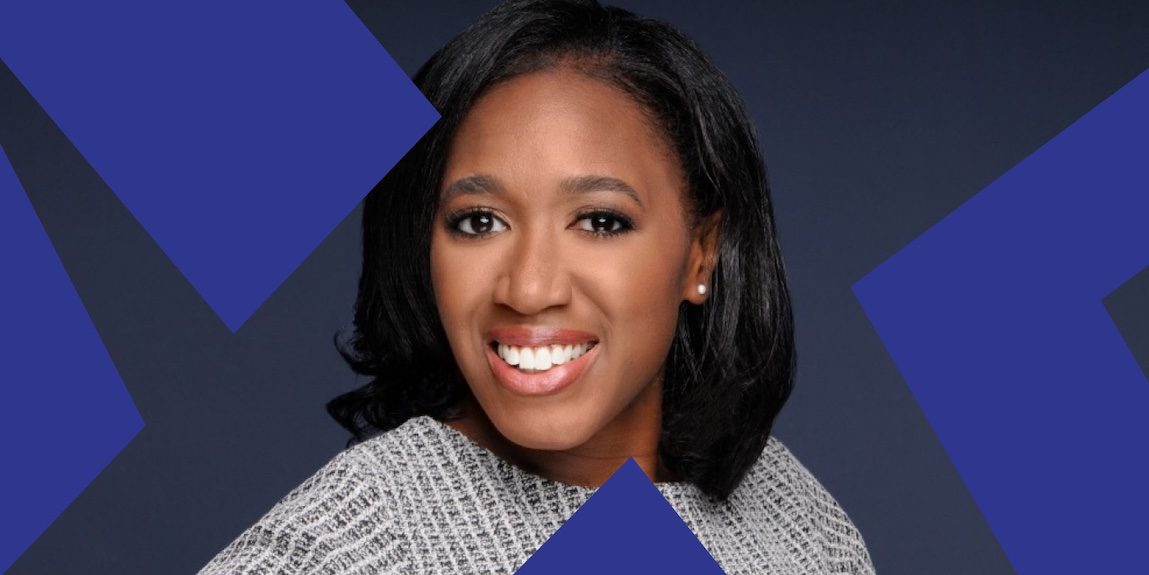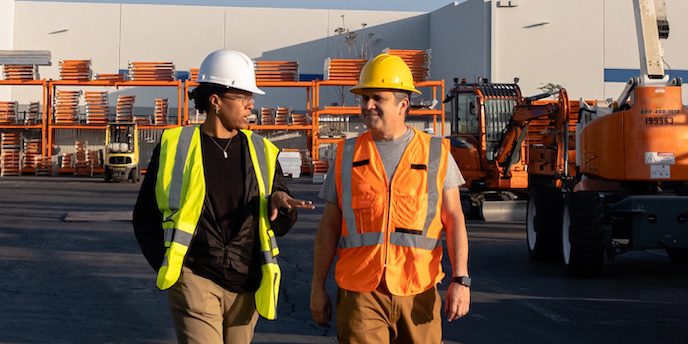Rental, Success Stories

By Bane Machinery
Rental Company


Meet Jennifer Todd. As founder and president of LMS General Contractors, she’s risen through the ranks of construction over the best part of the past two decades earning the admiration of many.
So far so very normal you might say even if female leaders in construction are rare enough to make her achievements something of note. But Todd is also a woman of color, a Black woman in construction.
At Trackunit Next, Todd relates one nerve-jangling encounter with white supremacist group, Ku Klux Klan members while working on a project site.
“I remember as a Black woman being chased on the highway by the KKK and having fuel lines cut to our equipment on projects,” she says. She recounts her employees being denied service before 8pm at a local restaurant.
Despite that, Todd has managed to make LMS a serious player where US women in construction make up just over 10% of the industry. Moreover, she’s become a driver of change and a leader in the advancement of women in construction.
“I was the only one who looked like me.”
Starting as a construction office receptionist, she became the first Black woman and business owner featured on the cover of Construction Business Owner magazine, as well as the youngest Black woman in California to acquire a General Engineering (A) license.
The US construction industry which Jennifer joined 16-years ago was 99% male dominated. In fact, when she started on site, “I rarely saw women on jobsites,” she says. “I was a young Black woman, with no visible role models.
“I felt like a unicorn,” she adds. “I was the only one who looked like me.”
At that time, while social media companies, like Facebook, Twitter and MySpace were spreading throughout society, it was very unusual to find mobile connectivity on project sites, emphasizing the lack of community that women experienced within the industry.
But times are changing. Slowly. According to research from IBIS World, in 2023 there will be approximately 10 million construction workers in the US. Further research from Construction Dive reported that in the US Construction sector, 14% of the industry are women. Zippia reports that 27.7% are Hispanic while 2% of all construction workers are LGBT.
“There are positive things that come from our differences, but there is also unconscious bias, which sometimes gets in the way of making the best decisions as colleagues and leaders.”
In recent years, the construction industry has seen important steps forward in terms of diversity, equality, and inclusion. Nevertheless, those three little words are often weaponized, politically, and socially, which in some instances lead to backlash. Although it is not just about race, there’s age, gender, religion, and disability as well as socio-economic and sexual orientation that also influences workplace behavior.
“Our perspectives are shaped upon our beliefs, which are based upon our experiences,” says Todd. “There are positive things that come from our differences, but there is also unconscious bias, which sometimes gets in the way of making the best decisions as colleagues and leaders.”
She believes that diversity is what really binds us together and inclusion can really change the game. Inclusion is about the variety of who has power and decision-making authority. Each person brings their own perspective which ensures all people are represented. It allows everyone regardless of sex or race to have a seat at the table, and this is important to ensure that senior executives understand the varying needs that each employee has which should influence policy and decision making.
There has been a great deal spoken and written about the labor shortage, with estimates of 1 million more construction workers needed in the US over the next couple of years.
“That’s kind of scary as a contractor,” says Todd. “We’ve already suffered, as a contractor business owner, we’ve felt the crunch. However, the truth is, there are 332 million people in the US, and 140 million are millennials or Gen Z.”
Todd has tapped into that by creating the 501c3 nonprofit ‘A Greener Tomorrow’ offering construction apprenticeships, which provides education, awareness and opportunities to minorities and women across the US. It offers classroom and on-site job training to the traditionally underserved populations, people like Todd.

This is a supportive process to introduce a section of society that has previously no real knowledge of the opportunities that construction offers. It is bridging the gap between assumed bias and positive reinforcement to bring new workers, with different perspectives into the industry. A Greener Tomorrow has been a remarkable success with an 85% rate of women participants gaining roles within a construction trade.
Now when she talks to peers about the next generation of workers, she talks about the value of attracting women and minorities. With the labor crunch affecting the business bottom-line, the need to become inclusive, and to seek out a more diverse workforce is even more important. A shift in marketing efforts and hiring initiatives is required to attract more youth, women, and minorities.
Todd says it is essential to create inclusive job sites where everyone is safe, where every employee feels seen, heard, and respected for their contribution of work. Everyone needs a safe working environment where they are not harassed, antagonized, or ostracized because they are not white or male working on site.
In the US, she says, women account for 50.5% of the population, and only around 1 million are in construction. A major problem is that 66% of women in construction have reported sexual harassment, and 41% stated lack of promotion and advancement, with limited guidance or mentoring available or offered. A further 39% stated supervisors or managers ignored or did not take their problems seriously.
These are workplace culture issues. Employees rely on supervisors and managers and up to C-suite officers to implement processes and procedures that support every employee, regardless of position or other personal attributes. When workers feel unsupported and unheard, that is when they leave, or become disruptive.
Todd uses most forms of social media to advocate for the construction industry and believes it should be used to illustrate good practice, as well as call out harassment and bad or even dangerous conduct. In this way, the industry can help police itself and change attitudes on site and awareness in the wider target audience.
She advocates better awareness of our unconscious biases, making sure everyone from management down is fully aligned on the organizational vision and goals in relation to inclusivity and proper, systematic tracking of progress.
Studies, adds Todd, show diverse teams outperform their competition by 33%. Inclusion breeds ingenuity, innovation, creativity, productivity and out of the box thinking where leaders take note. It also improves employee retention and long-term job satisfaction, all factors that support the bottom line.
Digitalization of the workplace can assist with this as mobile telemetry, body cameras and sensors are helping to reduce accidents and improve oversight across project sites. Sites must become places where all ethnicities and experience levels can feel welcomed and have the confidence to ask important questions of colleagues and seniors. And seniors have to respond in kind.
“People don’t quit jobs,” Todd says. “They quit their boss.”
Watch Jennifer Todd’s keynote from Trackunit Next on-demand.

